Monthly Journal
September 2024
International Press Review
The most relevant events of the area through international sources
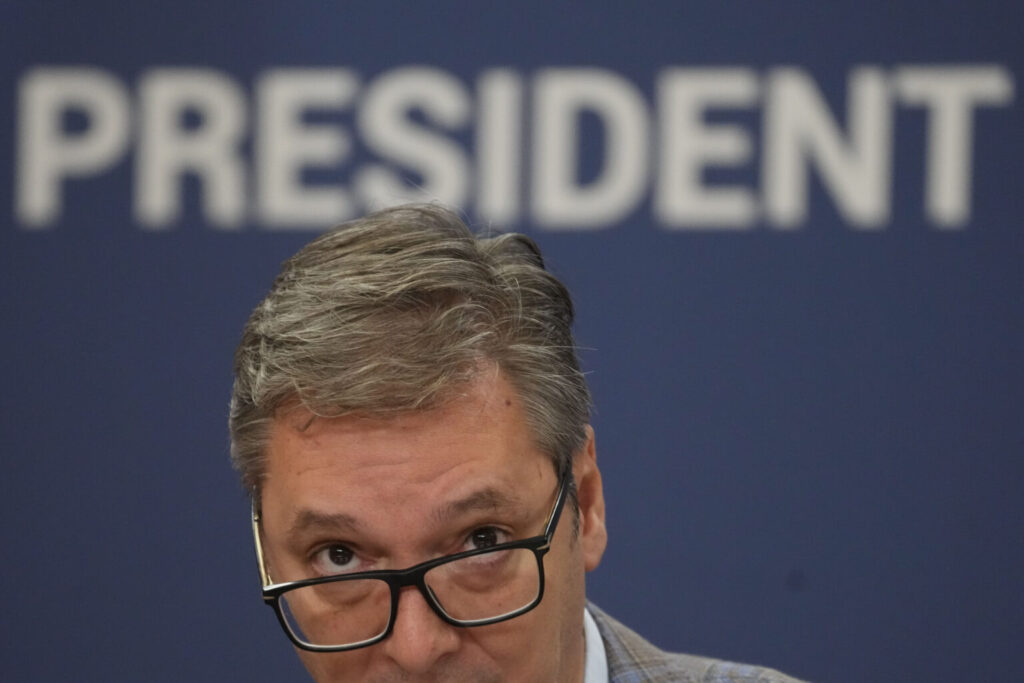
Vucic refuses invitation to Putin’s BRICS summit
N1
Serbian President Aleksandar Vucic declined Russian President Vladimir Putin’s invitation to the BRICS summit in October, citing other important engagements. Vucic explained that he would not attend the summit in Kazan due to significant discussions planned with at least six presidents and seven to eight prime ministers at the UN General Assembly in New York. The invitation from Putin was extended to Vucic through Serbian Deputy Prime Minister Aleksandar Vulin during the Eastern Economic Forum in Vladivostok.
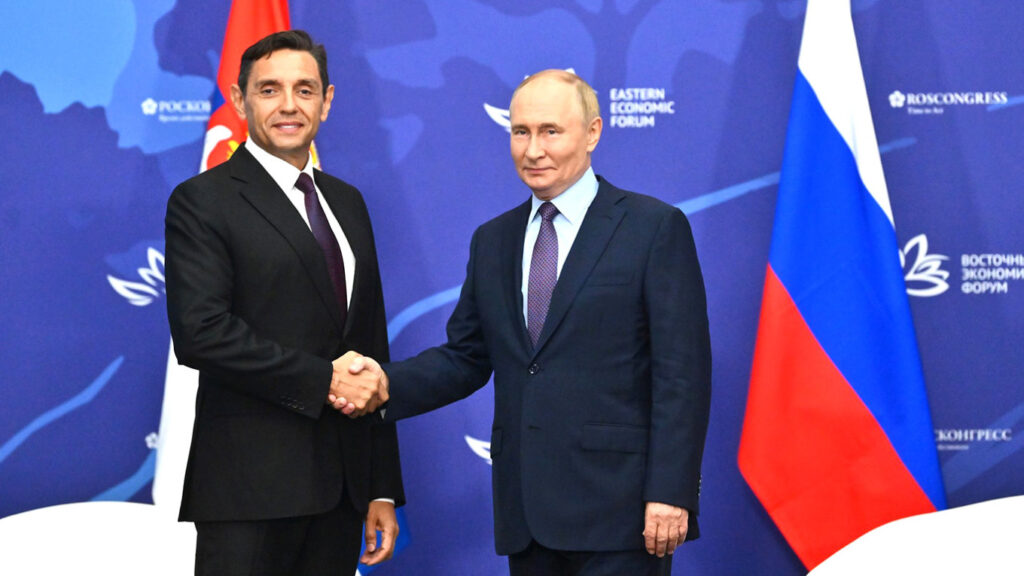
Serbian Deputy PM assures Moscow Belgrade remains an ally
Radio Free Europe
Serbian Deputy Prime Minister Aleksandar Vulin reassured Russian President Vladimir Putin that Belgrade remains an “ally of Russia” and a strategic partner. During a meeting at an economic forum in Vladivostok on September 4, Vulin emphasised that Serbia would “never become a NATO member, impose sanctions on the Russian Federation or allow any anti-Russian actions from its territory.” In response, EU spokesman Peter Stano stated that maintaining or increasing ties with Russia amid its aggression in Ukraine contradicts EU values and the accession process.
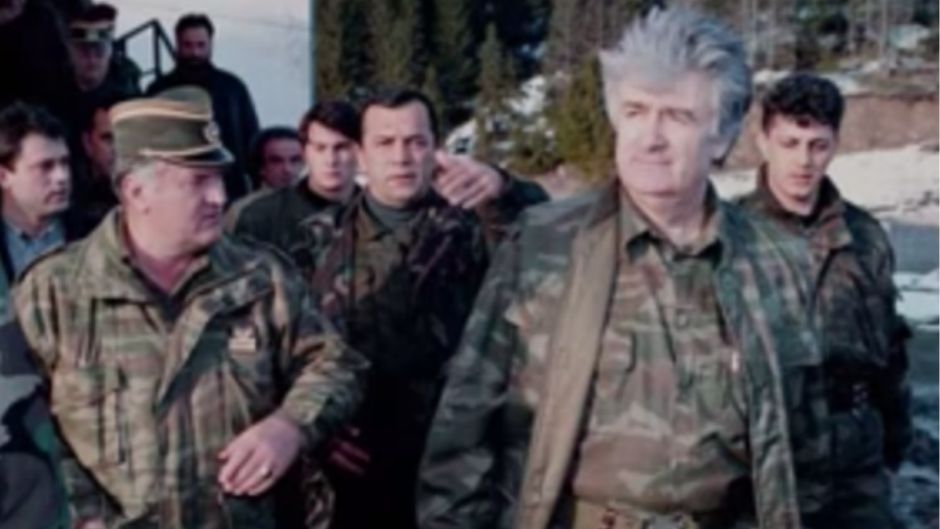
Mladic and Karadzic as ‘heroes’ in textbooks, US and OSCE concerned
N1
The Pedagogical Institute of Republika Srpska has revised its history curriculum for ninth-grade students, proposing to schools to teach that Radovan Karadzic and Ratko Mladic are war heroes instead of convicted war criminals. This change has ignited significant controversy, drawing condemnation also from the U.S. Embassy in Bosnia and Herzegovina. The Embassy criticised the politicisation of education, warning that such narratives prolong the suffering of victims and undermine reconciliation efforts. The Organisation for Security and Co-operation in Europe (OSCE) echoed these concerns, highlighting that biased historical accounts hinder social cohesion and accountability for wartime atrocities.
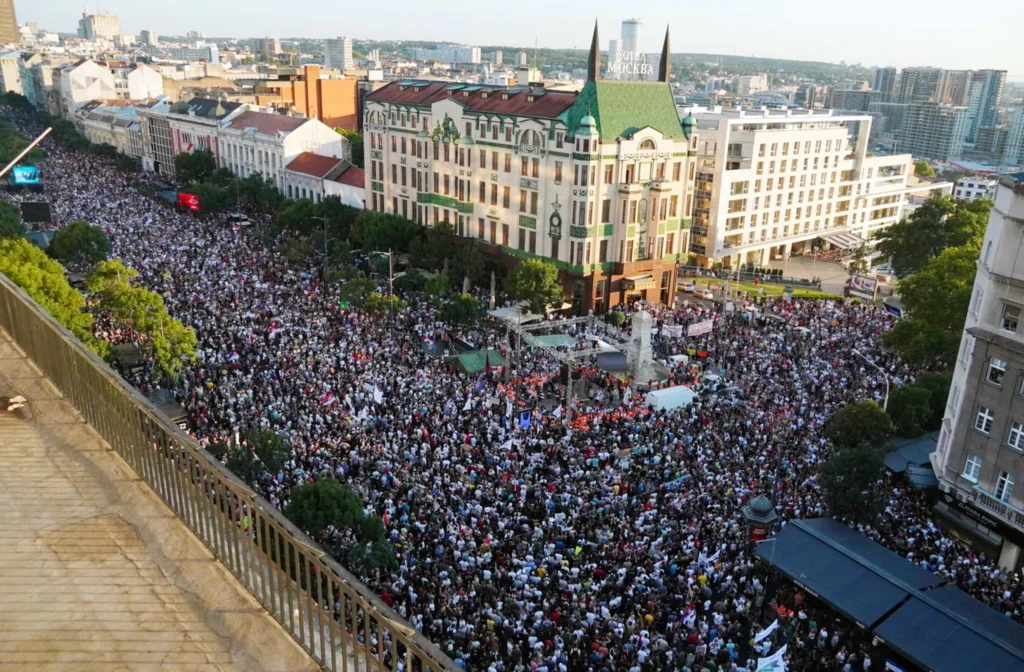
Anti-lithium protests still ongoing in Serbia
Radio Free Europe
Thousands of protesters gathered in centre of Belgrade on September 1 to oppose Serbian government’s crackdown on environmental activists against a planned EU-backed lithium mine. Demonstrators assembled outside the headquarters of state-controlled Radio Television of Serbia (RTS), demanding better coverage of the environmental concerns related to the project. The lithium mining initiative, led by giant Rio Tinto in western Serbia, has raised alarms over potential pollution of water and land resources.

NATO Reaction Force deployed in Kosovo and North Macedonia
NATO
Around 200 personnel from NATO’s newly established Allied Reaction Force (ARF) will be deployed to the Western Balkans until October 16, for training and to support the NATO-led Kosovo Force (KFOR). This marks the first ARF deployment since its creation in July 2024. Approximately 50 personnel will be in Kosovo, with 150 stationed in North Macedonia. The ARF will test its readiness and support KFOR’s logistical, infrastructural, and operational needs.
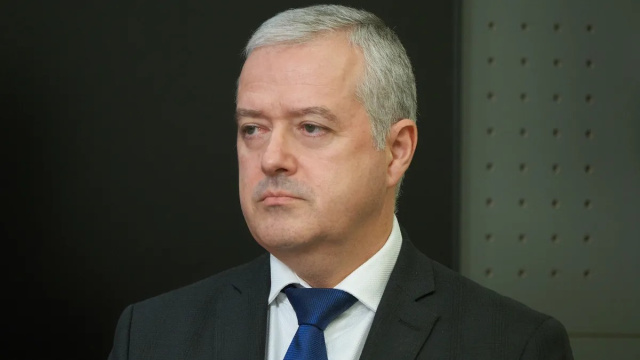
Bulgaria’s FM pushing for Ukraine’s full membership in NATO
Novinite
Bulgarian Acting Foreign Minister Ivan Kondov stressed that NATO’s full security depends on Ukraine’s membership during a dinner with EU and NATO foreign ministers. Kondov also reaffirmed Bulgaria’s commitment to strengthening NATO’s eastern flank and enhancing security in the Black Sea region.
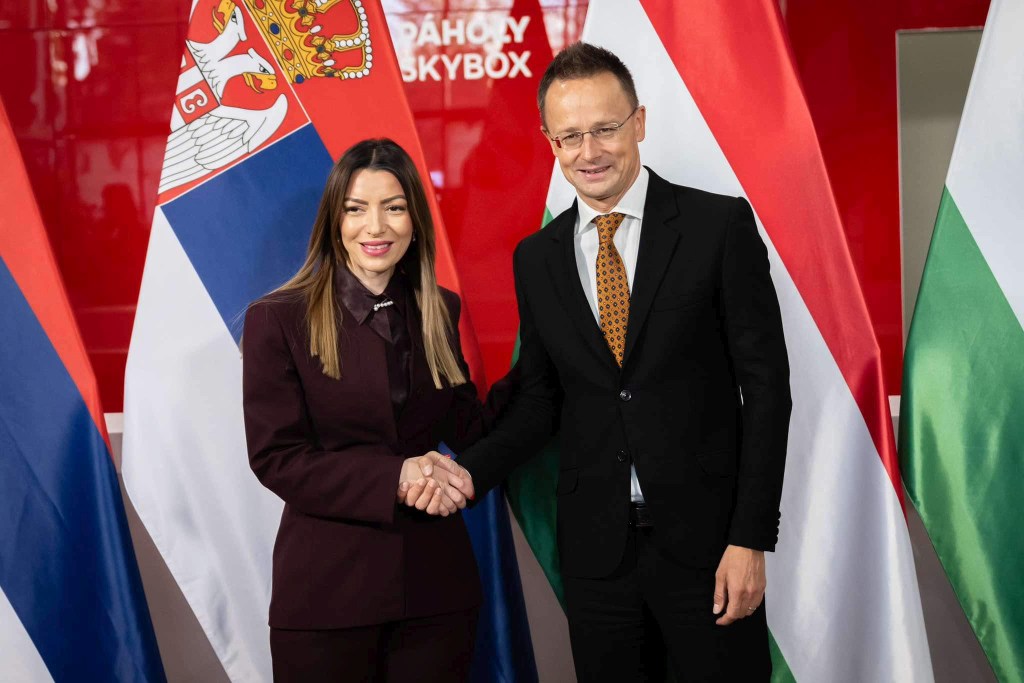
Study on Serbia-Hungary pipeline for Russian oil to be soon completed
SeeNews
Serbia’s government announced a feasibility study for a 128-km oil pipeline to Hungary, connecting Novi Sad with Algyo, which is planned for completion by 2027 to transport Russian crude oil to Serbia through Hungary. Preparations are also underway for a new power transmission line between the two countries, set to be finished in 2028. Serbia has allocated €150 million for the pipeline, which is part of an agreement with Hungary signed in June 2023.

Republika Srpska Election Law annulled by Constitutional Court
FENA
The Constitutional Court of Bosnia and Herzegovina (BiH) annulled the controversial Election Law of Republika Srpska (RS) for being inconsistent with the BiH Constitution and national Election Law. The decision followed requests from BiH House of Representatives, citing that the RS law infringed the central institutions’ powers and lacked constitutional justification. The ruling highlights the court’s commitment to upholding national laws and protecting political rights in Bosnia and Herzegovina, local media reported.
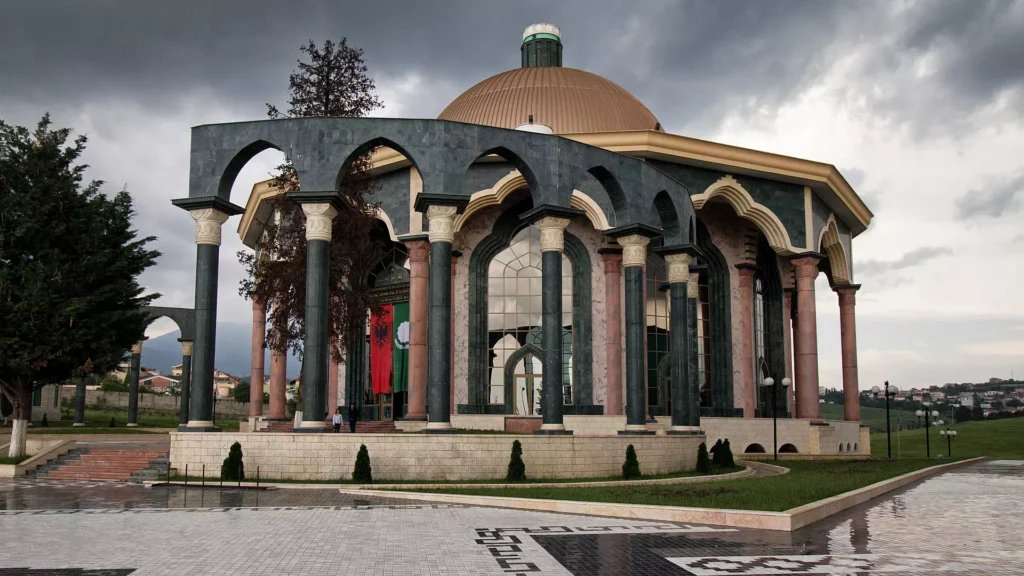
Albania to create a Muslim mini-sovereign state
The Associated Press
Albanian Prime Minister Edi Rama announced plans to transform the Tirana-based Bektashi Muslim order, a moderate Islamic Sufi group, into a mini-sovereign state on Vatican model, to promote global tolerance and peaceful coexistence. While details on how sovereignty would be achieved remain unclear, the Bektashi Order views this move as a step toward fostering global religious tolerance. Bektashi Muslims represent about 10% of Albania’s predominantly Muslim population.
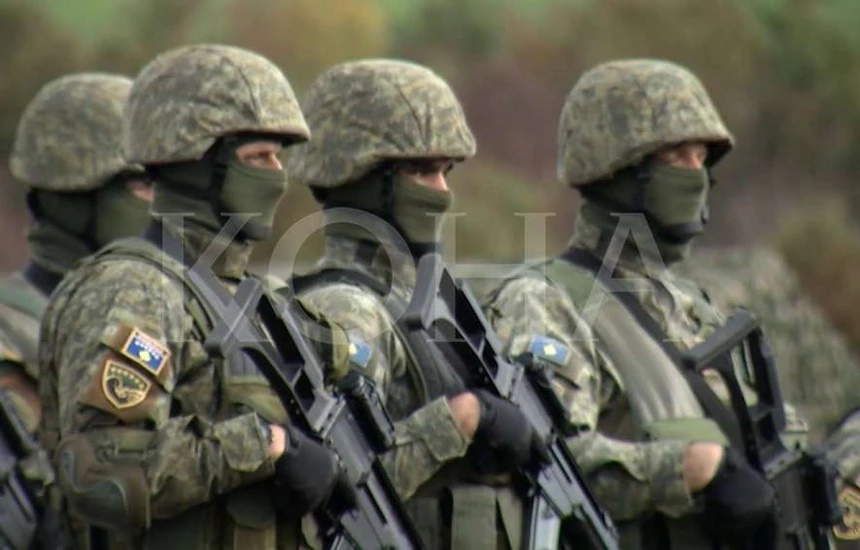
Kosovo to acquire helicopters for its Security Force
Koha
Kosovo’s Defense Minister Ejup Maqedonci announced that the transformation of the Kosovo Security Force (FSK) into a regular army is currently in its second phase. The move is likely to further increase tensions with Serbia. Increased budget allocations have allowed for early purchases of military equipment, the minister said. The comprehensive transition plan includes plans for a helicopter fleet in the third phase (2025-2028). The UK is supporting the Kosovo Security Force in meeting the objectives of this phase, which includes the validation of three infantry regiments to safeguard the nation’s sovereignty and territorial integrity, the minister said.
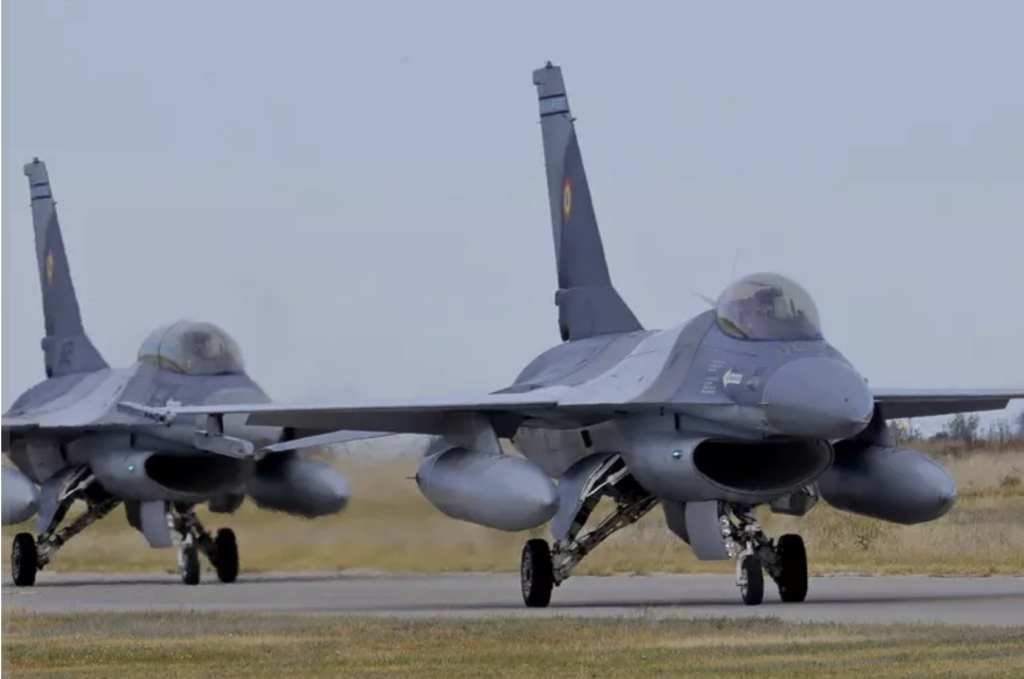
Ukraine’s pilots begin training on F-16 in Romania
France Presse
The first group of Ukrainian pilots began F-16 training at Romania’s Fetesti air base, as announced by the Romanian Defence ministry. This initiative follows Ukraine’s request for advanced military jets since Russia’s invasion in 2022. The training hub, inaugurated in November 2023, aims to enhance Ukraine’s air force capabilities. The first four pilots are currently undergoing theoretical training, with fights expected by the year’s end. Romania’s fleet includes 26 F-16 jets, with additional aircraft supplied by Norway.
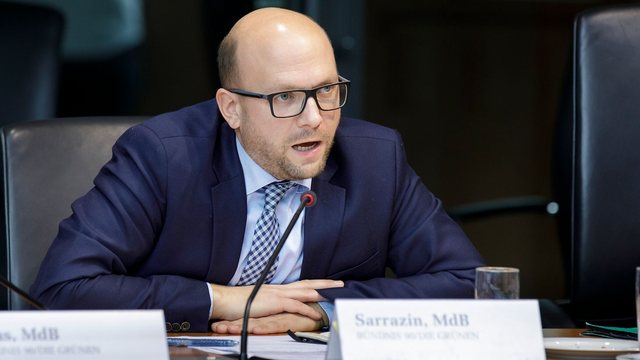
Pristina risks further isolation due to ban against Serbian imports
Balkan Insight
Kosovo may face exclusion from the Central European Free Trade Agreement (CEFTA) and other international sanctions if it maintains its ban on Serbian imports, according to Germany’s Balkan envoy, Manuel Sarrazin. During a visit to Kosovo, Sarrazin urged Prime Minister Albin Kurti to lift the June 2023 import ban, which Berlin says hinders regional free trade. If the ban is lifted, Kosovo would represent itself in CEFTA but with a designation of Kosovo*, with the asterisk reflecting its disputed status. The situation is a key topic ahead of the Berlin Process summit to take place on the 14th of October.
The Insight Angle

Sergiu Mișcoiu
Sergiu Mișcoiu is a prominent Romanian political analyst and researcher, as well as a Professor of Political Science at the Faculty of European Studies at Babeș-Bolyai University in Cluj-Napoca. He also serves as the Director of the Center on International Cooperation and the Centre for African Studies (Cestaf) at Babeș-Bolyai University. Additionally, he is a permanent member of the Political Studies Institute at Paris-Est University (LIPHA).
How would you assess the importance of NATO membership today, and what benefits has it provided to countries like Romania?
When trying to answer this question, I always propose to my students an exercise of counterfactual history: how would Romania be like if it was not a NATO and an EU member? The image is quite scary, both in terms of development and in terms of security, as they are very interconnected. Definitely, Romania would be in the grey zone, under the direct threat of Russia, probably with an unstable political system, with a much higher level of corruption, without the support of the structural funds, without the freedom of movement of the Romanian citizens in Europe and across the ocean.
Belonging to NATO has not only been beneficial in terms of security, but also in terms of the institutional strength of the Romanian state, the guarantee of the rule of law, the modernisation of the army, of the police, of the secret services. It is also important to notice that Romania succeeded to become a trusted interlocutor for the western States and the international organisations thanks to its positive credentials brought by the NATO membership.
Do you believe it is important to extend NATO’s membership to countries such as Moldova, Bosnia-Herzegovina and Kosovo? What about Serbia, who seems reluctant to join NATO?
Keeping Moldova, Bosnia Herzegovina and Kosovo under the Euro-Atlantic influence is critically important for guaranteeing the security of Europe and more generally that of the western world. These three countries have experienced not only social and political unrests, but also civil wars during different stages of their transition. The very statehood of these countries has been and to some extent still is problematic, and Russia and the other anti-western forces use this ambiguity related to the national identity and the geopolitical compass of these countries in order to keep a huge amount of pressure on the EU and on NATO. Thus, NATO’s presence in these countries is of paramount importance for maintaining their security. It is of outmost importance for NATO to succeed in defending the territorial integrity of Moldova and of Bosnia Herzegovina, threatened by the seceding forces whose interests are in line with those of Kremlin.
As far as Serbia is concerned, under the leadership of president Vucic, the geopolitical direction of the country has consistently switched from a hesitantly pro-western line to an increasingly pro-Russian stance. The conflict over the very existence of Kosovo has alienated even more Serbia from the perspective of integrating into NATO and the EU. NATO’s strategy should be maintaining of a constant pressure over the Serbian authorities, while showing to the Serbian citizens the huge advantages the other countries in the Western Balkans who joined the EU and NATO have succeeded to gain. Meanwhile, the renormalisation of the relation between Serbia and Kosovo should be one of the main preoccupations to avoid the risk of violent conflict in the region.
Many analysts and experts claim that Russia might try to open a new front in Europe by destabilising countries like Bosnia and Herzegovina or provoking new tensions in northern Kosovo. Do you think this risk is real, and how could Europe, and eventually NATO, counteract it?
The destabilisation of the countries that have once been under the direct or indirect influence of Russia is certainly a part of Russia’s foreign policy strategy. Bosnia, which is still ethno-religiously divided, is a perfect case for projecting Russia’s influence in the region. Moscow is increasingly successful in convincing the Orthodox Serbian Bosnians to claim a higher degree of autonomy and even their independence from the other parts of the state.
Russia carries out a hybrid war by using to a high extent the local influencers in order to increase discontent among the local populations. The same recipe, applied in an even less covert manner, functions in northern Kosovo, where Russia uses the nationalist Kosovars actions to stimulate the Serbians’ secessionist claims. All these operations have increased since the Russian invasion in Ukraine, and we may very well expect an even more concentrated set of actions to push for a dramatisation of the local and regional conflicts.
How significant is the risk that countries in the Western Balkans, being outside the EU and only partially NATO members, could become increasingly dependent on external powers like Russia or China? What are the potential risks for Europe in this scenario?
Unlike Russia, China has a much more subtle strategy, which is less perceivable from a European perspective, even if it seems obvious for the Americans. Like in many African countries, China massively invested in the Western Balkan countries, especially in big infrastructure projects, in creating or strengthening enterprises in various fields, such as energy, heavy industry or agriculture. Given the financial limitations of the western states and the bureaucratic constraints that sometimes suffocate the investment processes in the western Balkans, the level of commitment in the direct development of key sectors of these countries’ economies is still relatively low. This allows China to continue its investments, even if during the last three years the pressures of the United States against the limitless opening towards the Beijing’s initiatives led to a certain slow-down. Nevertheless, if these investments of China will continue, and if the combined presence of China and Russia will be increasingly salient in the western Balkans, the European Union itself will be threatened in a more direct way both economically and geopolitically. The competition on the economic ground will have in the long term some important negative effects over the EU’s capacity to develop by investing and exporting, while the immediate presence of anti-Western actors near the geographical centre of Europe will be felt by the Europeans as an increasingly important danger to their security.
In Romania, work is ongoing to transform the military base at Mihail Kogălniceanu into the largest NATO air base in Europe. Is this a sign that the risks of an extension of the conflict in Ukraine are increasing, or is it simply a step towards enhancing defense capabilities on the Eastern flank?
The important investments in the infrastructures of the military bases in Eastern Europe reflect the current devolution of the geopolitical situation and the fact that there is the clear perspective over the possibility of direct aggression against Romania, Poland and/or the Baltic states. Romania and Poland have been warning the western chanceries for more than two decades about the increasingly threatening attitude of Russia and the likelihood of direct aggression against Ukraine. So, what happened in February 2022 was for these countries the expected result of a series of concessions made by NATO and the EU to Russia. It is now natural to ask for the reinforcement of the eastern flank and four a higher degree of protection against a threat that could transform itself into acts of war. While there is no proof that Russia is willing and actually capable to extend its aggression against Romania, there is a need to deter Putin through a stronger and more massive presence of the NATO forces in the region These forces in South-Eastern Romania are also likely to continue and reinforce the missions of protection over the Black Sea, bringing also significant information about the moves of the Russian marine. Seen from Romania, this reinforced presence of NATO is a shelter against a possible Russian more direct threat.
The Key Story
Strategic trends
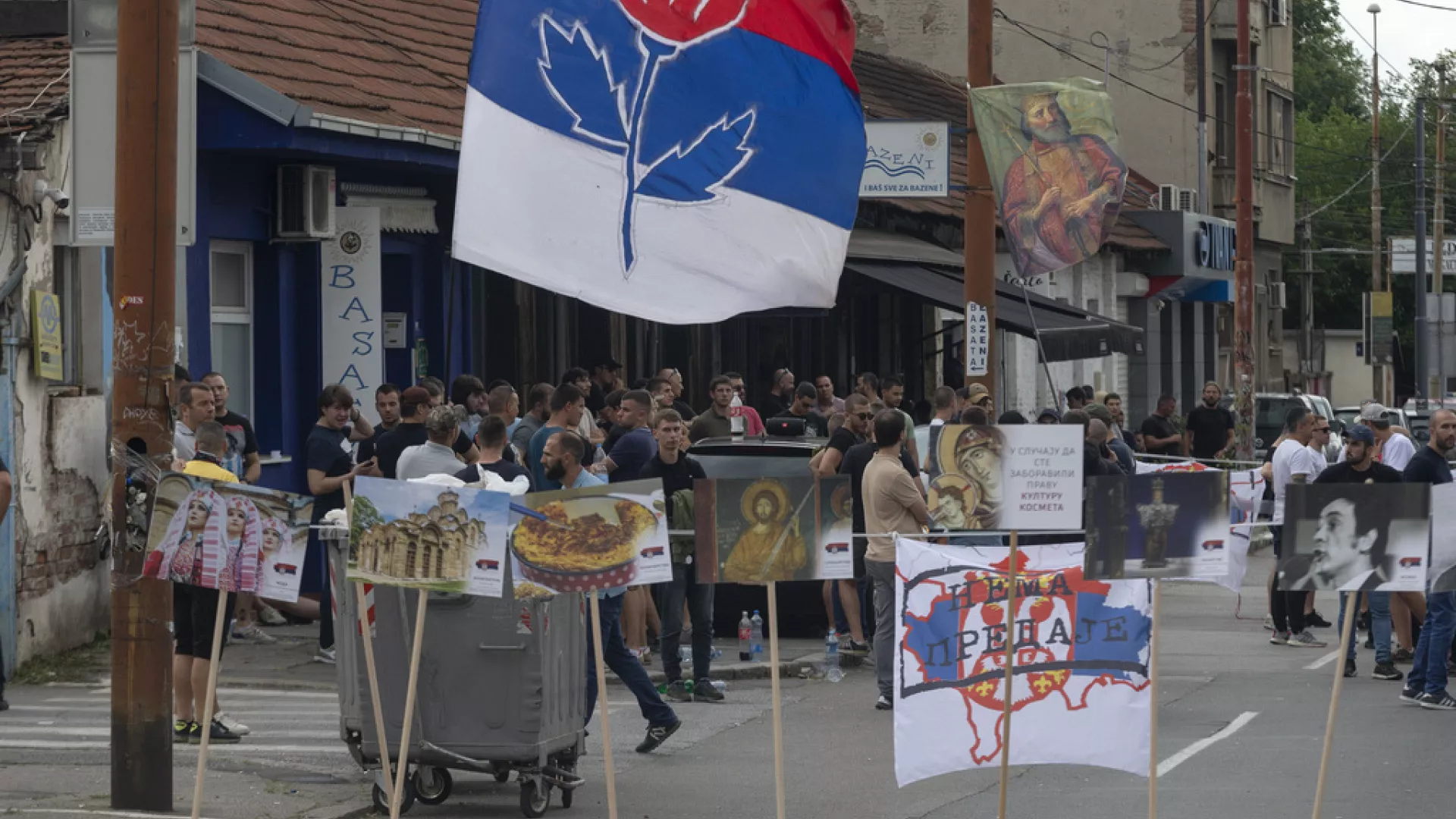
Kosovo cracks down on Serbian parallel institutions,
tepid reactions from Belgrade
In what appears to be a decisive yet controversial plan to fully assert control and sovereignty over northern Kosovo for the first time since 1999, Pristina’s authorities have, in recent weeks, intensified efforts to eradicate the remaining signs of Serbian influence in the area, where the population is predominantly Serbian.
These actions have sparked anger and fear among Kosovo’s Serbian community but have not been met with a strong response from Belgrade, which critics and opponents of Serbian President Vucic have described as suspiciously weak.
Among the most controversial recent actions taken by Pristina, Kosovo’s authorities, with the intervention of the Kosovo Police, forcibly shut down several parallel Serbian institutions in northern Kosovo, leading to protests from local Serbs. These included the parallel municipalities of Mitrovica, Zvečan, Zubin Potok, and Leposavić, which had been providing essential services to the local Serbian population but are deemed illegal by Kosovo. The closure of the parallel municipal offices was criticised even by the most faithful ally of Kosovo, Washington, with the US Embassy in Kosovo expressing “concern and disappointment with the ongoing uncoordinated actions… that continue to have a direct and negative impact on members of the ethnic Serb community and other minority communities in Kosovo.”
However, Kosovo’s Minister of Local Self-Government Administration, Elbert Krasniqi, claimed that parallel Serbian municipalities work under the leadership of Serbia, they were “violating the constitutionality and laws of the Republic of Kosovo” and therefore had to be closed. Earlier this year, Kosovo shut down additional parallel Serbian municipalities in other parts of the country, including Prizren, Pec, Suva Reka, Istok, Klina, Orahovac and Dragas.
In another provocative move, Kosovo’s Prime Minister Albin Kurti urged also for the complete reopening of the main bridge in the contentious city of Mitrovica, divided between Serbs and Albanians by the Ibar river. Kurti argued that this would facilitate free movement and create no threat to anyone. However, Western powers remain cautious, fearing that it could exacerbate tensions. The bridge has been closed to passenger vehicle traffic for over a decade, as minority ethnic Serbs have repeatedly erected barricades since 2011. They claim that allowing ethnic Albanians to travel freely over the bridge into their part of the city in northern Kosovo would lead to “ethnic cleansing.”
In the past months, Kosovar authorities have been actively implementing operations and legal strategies to dismantle the parallel system of social services and political offices supported by Serbia. Kosovo has effectively prohibited the use of the Serbian dinar, closed Serbian banks that operated with this currency and shut down post offices where pension payments could be received. Belgrade continued since 1999 to finance a separate system of healthcare, education and social security for the ethnic Serb minority in Kosovo.
Kosovo Serbs are also no longer permitted to drive vehicles with Serbian license plates and are now required to obtain local driver’s licenses. Moreover, Serbs in Mitrovica are growing increasingly wary of the emergence of Albanian-owned shops and commercial activities in the Serbian part of the town. This development, which was inconceivable just a year ago, is viewed by many as a sign of the further encroachment of the Albanian majority in the north.
Serbia’s response to the actions occurring in Kosovo has been relatively subdued, indicating that Belgrade may be exercising greater caution regarding the Kosovo issue. Aside from a protest organised by Serbian groups against the closure of Serbian parallel institutions, that led to road closures in Serbia proper and compelled Kosovo to shut down two main border points, Belgrade has primarily called for a return to the “status quo ante,” referring to the agreements and progress made during the dialogue process.
“Serbia is in a difficult legal and political situation regarding Kosovo and Metohija. Economically, we are progressing very quickly and very well, but our most painful and difficult point is Kosovo and Metohija,” Serbian president Vucic said. Vucic then presented his proposal, which remains unanswered by Pristina, calling for a return to the “status quo ante” by addressing the key consequences of the unilateral and uncoordinated actions taken by Kurti’s regime.
Among Belgrade’s requests are the following:
Conducting free and democratic local elections in northern Kosovo and Metohija
The collective return of Serbs to Kosovo Police and the judiciary system in Kosovo
The withdrawal of special forces of the Kosovo police from established bases and checkpoints in northern Kosovo
The urgent, immediate, and final establishment of the Community of Serb Municipalities (CSM)
Ensuring uninterrupted payment and postal services
Guarantees from the European Union and the United States regarding the release of “political prisoners.”
However, considering that Kosovo is set to hold general elections next year, there is little room for optimism regarding a more peaceful situation in the north. Serbs in the region are growing increasingly apprehensive about potential new actions by Pristina, while the Kosovo government seems to be intensifying its efforts to assert control over areas with a Serbian majority. And in this scenario every controversial step could provoke new, possibly uncontrollable tensions.
Further News and Views
Albania’s EU path to be decoupled from the one of North Macedonia
Sources: Euractiv, SeeNews, BNR, Balkan Insight
Albania’s path to EU accession will be decoupled from that of North Macedonia for the first time since 2022, with the first clusters of negotiation scheduled to formally open on the 15th of October but only for Tirana, according to a unanimous decision by EU member state ambassadors reported by specialised European media. The next step for Albania is set to occur in mid-October, during the intergovernmental conference, focusing on the opening of “Cluster 1 – Fundamentals”. This cluster encompasses several key-chapters, including Procurement, Statistics, Judiciary and Fundamental Rights, Justice, Freedom and Security, and Financial Control.
While this decision marks a significant progress for Albania, it represented a setback for North Macedonia, which again faces delays in its EU accession. Despite an agreement reached in July 2022 under the French EU presidency to amend its constitution and recognise the Bulgarian minority, the implementation stalled due to insufficient political will in North Macedonia. This lack of consensus led to both countries experiencing stagnation in their EU accession processes.
North Macedonia’s Prime Minister Hristijan Mickoski expressed frustration over the decoupling, stating that he would not accept further delays or conditions tied to national identity concessions without guarantees. He emphasised that accepting such demands would feel like a “Diktat”.
Serbia decides to buy French Rafale jets
Sources: Euronews, Le Monde, European Western Balkans
In a significant shift towards the West, Serbia signed a landmark agreement worth 3 billion with France to acquire 12 Rafale jets for its military. The deal includes a comprehensive logistics package, spare engines, and parts. This acquisition, made during French President Emmanuel Macron’s visit to Belgrade, marks a pivotal change in Serbia’s security and political alignment, moving away from its traditional ally and weapons supplier, Russia.
The purchase of Rafale jets represents the largest weapons deal for Serbia since it became independent from Montenegro in 2006. Following Russia’s invasion of Ukraine, Belgrade has curtailed military cooperation with Moscow and condemned the invasion, yet it has refrained from imposing sanctions, unlike the EU and other Western nations, with which it aspires to align.
Moreover, if sanctions continue against Moscow, the maintenance of the existing Russian Mig-29 fighter-bomber fleet may become problematic. In any case the Serbian government has curtly denied that these aircraft were part of a swap package, whereby they would have been re-exported to Ukraine.
Serbia’s military technology has historically relied on Soviet/Russian models, but it has also diversified its arsenal by acquiring helicopters and transport planes from Airbus, radars from Thales, and Mistral surface-to-air missiles from France. Vucic assured that Serbia would not share Rafale technology with Moscow.
EU - NATO
US approved massive sale of F-35 to Romania
Sources: Defence News, US Embassy to Romania
The U.S. State Department has approved the sale of 32 F-35A Joint Strike Fighters to Romania in a deal worth approximately $7,2 billion, the latest of steps taken by Bucharest to increase its defence capabilities.
The sale includes F135 engines from Pratt & Whitney, spare engines, and support equipment. Romania, a NATO member, aims at receiving its first F-35s by 2030 and eventually plans to acquire 48 jets in total, potentially becoming the largest F-35 operator in NATO’s eastern flank.
The sale will enhance Romania’s defense capabilities and interoperability with NATO allies amidst growing concerns over Russian aggression in Ukraine. The deal also includes logistics, maintenance support, weapons, pilot training, and simulators.
US Ambassador to Romania, Kathleen Kavalec, stated: “This commitment is a testament to the strong partnership between our two nations and demonstrates once again Romania’s leadership in the defense of regional security. Romania is a key NATO Ally in promoting security and stability in the Black Sea region and beyond.”
ECONOMICS
Analysts focus on effects on the region of a Trump victory
Sources: Rest
The potential re-election of Donald Trump in the US is increasingly being discussed by politicians and experts in the Balkans, Central, and Eastern Europe. A new report by analysts from Erste Bank explored the potential impact of a Trump victory on the region’s economies. According to the study, two key post-elections issues could significantly influence global and CEE markets: US trade policy, including tariffs, and the country’s public budget.
The report highlights that EU exports to the US are largely dominated by machinery, pharmaceutical products, and vehicles, while the US exports primarily fossil fuels, pharmaceuticals, aircraft, and machinery to the EU. However, Central and Eastern European (CEE) exports to the US make up a relatively small share of total exports. One area of concern is Trump’s stance on electric vehicles, which he views as a threat to the auto industry. His resistance to EVs could dampen global demand, limiting Europe’s and the CEE region’s export potential in this sector.
On defence, the report stresses that maintaining the NATO alliance is crucial in the CEE region. The study noted that all countries in the region have increased their defence expenditure.

Stefano Giantin
Journalist based in the Balkans since 2005, he covers Central- and Eastern Europe for a wide range of media outlets, including the Italian national news agency ANSA, and the dailies La Stampa and Il Piccolo.

